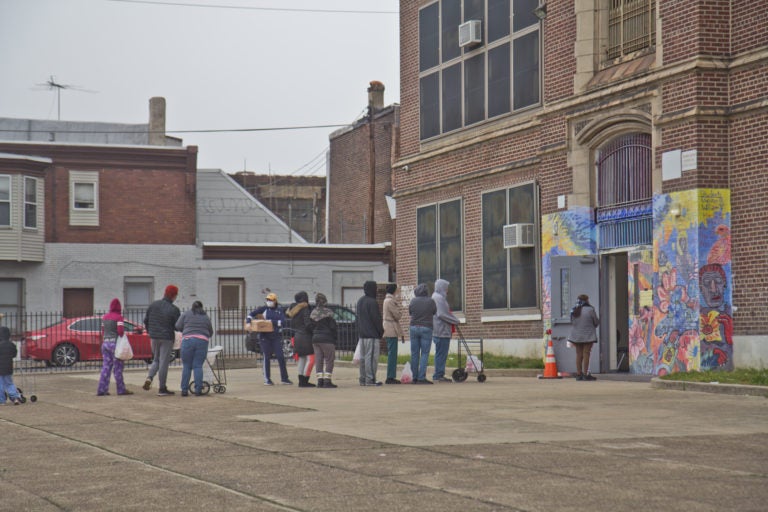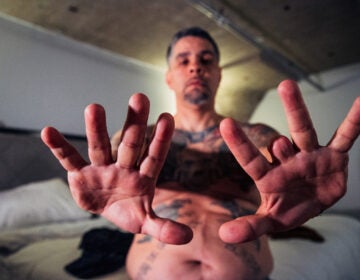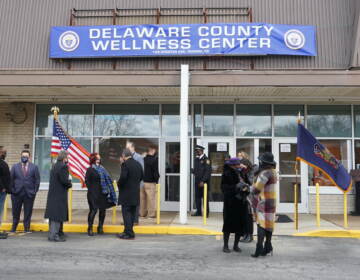Poverty and the pandemic
We look at how the coronavirus disproportionately affects people living in poverty and talk about gun violence in Philadelphia during the outbreak.
Listen 49:14
Hungry residents wait in line to pick up free food from the city Monday at Aspira Charter Stetson in Philadelphia. (Kimberly Paynter/WHYY)
Guests: Elinore Kaufman, Ana Diez Roux, Roy Wade
Poverty makes people far more vulnerable to the coronavirus pandemic and its economic repercussions. Philadelphia has among the highest poverty rate of any American city, with 26% of residents living below the poverty line. This hour we look at how low-income people are being disproportionately impacted by COVID-19. We’ll talk with ROY WADE, a pediatrician at Children’s Hospital of Philadelphia and ANA DIEZ ROUX, Dean and professor of epidemiology at the Dornsife School of Public Health at Drexel University about the outbreak’s toll on poor communities. But first, we look at why shootings in Philadelphia haven’t declined, despite drops in other crimes during the pandemic. University of Pennsylvania trauma surgeon ELINORE KAUFMAN discusses the collision course between victims of gun violence and COVID-19 in emergency rooms.
WHYY is your source for fact-based, in-depth journalism and information. As a nonprofit organization, we rely on financial support from readers like you. Please give today.



![CoronavirusPandemic_1024x512[1]](https://whyy.org/wp-content/uploads/2020/03/CoronavirusPandemic_1024x5121-300x150.jpg)


